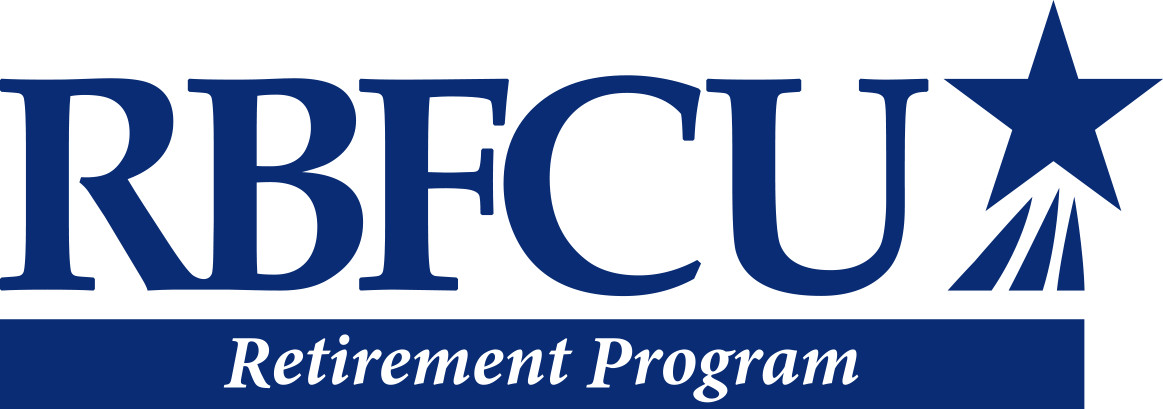Career Transitions and Retirement: What School Employees Need to Know
Career transitions come in all shapes and sizes. For today's Texas K-12 school employees, those transitions can mean everything from leaving teaching for a new career to post-retirement work in a different profession.

Whatever form your career transition takes — or if you are stepping into retirement, those changes may impact your finances. Read on to discover what you need to know as you plan for a new job, shift your career path, or move toward your retirement and post-retirement life.
Providing insights along the way is Deric Eldridge, a financial advisor with the RBFCU Retirement Program. Established in 2018, the program offers one-to-one, personalized guidance from financial advisors to educators and school employees in Texas who are planning for retirement.
Career transitions: Jobs outside of education
Changing jobs or employers during your career isn't unusual. But any change in employment outside of public education may impact the retirement benefits you earned as a school employee — even if you are paying into another pension program or Social Security through your new job.
“The Teacher Retirement System of Texas, known as 'TRS,' currently takes 8.25% of an employee's paycheck to fund the pension,” explains Eldridge. "The money you put into TRS and the accrued annual 2% interest it earns is fully vested. If you leave your job at any point, you can keep it in place and let it grow or remove it and roll it over to another plan. Or you can opt to take a full distribution."
However, Eldridge notes that there are additional considerations, including tax implications, if you receive the funds in cash. For instance, there may be a 10% penalty on that distribution if you're under 59½ years of age and a mandatory 20% federal tax withholding. If you choose a rollover, then you'll want to consider whether you want a tax-deferred plan (Traditional IRA) or one in which you pay the taxes upfront (Roth IRA).
Career transitions: Post-retirement employment
Once you're retired from education, you may embrace work-free days or switch gears to another field. Of course, there are financial benefits1 if you continue to work. You may also enjoy staying active with a job that is different from what you spent most of your career doing.
Whatever the reason for dipping your toe back in the job pool, consider all the financial implications, including what will happen to your retirement benefits. For instance, TRS2 has policies regarding employment after retirement.
If your post-retirement job is outside of Texas education, you can continue to collect your TRS pension while you work.
If your post-retirement job is inside Texas public education, there are guidelines to follow based on your effective retirement date. Those guidelines are detailed in the TRS Employment After Retirement handbook.3
Rolling over your TRS funds in retirement
Some people who leave Texas K-12 education jobs may decide to rollover their TRS retirement funds into an Individual Retirement Account (IRA).
The Internal Revenue Service4 outlines two different ways to complete a rollover:
- Direct Rollover: Ask your plan administrator to make the payment directly via check to another retirement plan or to an IRA. No taxes will be withheld from the transfer amount.
- 60-Day Rollover: If a distribution is paid to you directly, you must deposit the funds to another account within 60 days. If you choose this option, there will be a mandatory 20% federal tax withholding.
But why might someone want to move their money from TRS to an IRA? According to Eldridge, some people find that rollovers of such plans to IRAs may help simplify their finances in ways that build confidence.
"It's easy to track the fund's performance, your savings progress and the completion of your savings goals," explains Eldridge. "But this choice should be analyzed on a one-to-one basis to determine if the risk tolerance is suitable for the individual — as well as determining if there are any penalties or charges for transferring the funds out of your old plan."
Eldridge added that, through an appointment with him via the RBFCU Retirement Program, he can provide a document covering the pros and cons of a rollover to anyone considering whether a rollover might be right for them.
How the Windfall Elimination Provision can impact retirement benefits
In the past, you may have heard that the Windfall Elimination Provision (WEP) could reduce your Social Security Retirement benefits if you work for an employer (e.g., most Texas public K-12 school districts) that does not withhold Social Security taxes from your salary.
Or you may have read that, while the WEP could affect your benefits, you might still be eligible for Social Security Retirement benefits through contributions made via a dedicated payroll tax when you were employed elsewhere (i.e., outside of education).
Those old, confusing rules are changing, however.
“That’s because, on January 5, 2025, the Social Security Fairness Act, HR 82, was signed into law,” says Eldridge. “Once implemented, this federal act eliminates the reduction of Social Security Retirement benefits through the Windfall Elimination Provision and the Government Pension Offset [GPO] for many public sector employees, including teachers. This change is long overdue.”
The Social Security Administration will share updates and answer questions online5 as more information becomes available.
“Of course, representatives from the RBFCU Retirement Program, the Social Security Administration or TRS6 can help you navigate this change and its potential impact on your retirement planning,” notes Eldridge.
The takeaway
Whether you’re moving into a new position, changing careers or heading into retirement, it’s likely you’ll have questions about the financial impact of your decision. Know that the RBFCU Retirement Program is here to help. Our financial advisors are familiar with the unique needs and challenges faced by Texas K-12 school employees. Schedule your initial no-cost, no-obligation consultation with the RBFCU Retirement Program today.


.jpg?sfvrsn=b1cfb2a8_4)

.jpg?sfvrsn=2096b2a8_4)